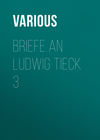Buch lesen: «The Mirror of Literature, Amusement, and Instruction. Volume 17, No. 473, January 29, 1831», Seite 3
THE NATURALIST
ANECDOTES OF A TAME HAWK
(By a Correspondent of the Magazine of Natural History.)
About three years since a young sparrowhawk was purchased and brought up by my brother. This was rather hazardous, as he, at the same time, had a large stock of fancy pigeons, which, in consequence of their rarity and value, he greatly prized. It seems, however, that kindness and care had softened the nature of the hawk, or the regularity with which he was fed, rendered the usual habits of his family unnecessary to his happiness; for, as he increased in age and size, his familiarity increased also, leading him to form an intimate acquaintance with a set of friends who have been seldom seen in such society. Whenever the pigeons came to feed, which they did often-times from the hand of their almoner, the hawk used also to accompany them. At first the pigeons were shy, of course; but, by degrees, they got over their fears, and ate as confidently as if the ancient enemies of their race had sent no representative to their banquet. It was curious to observe the playfulness of the hawk, and his perfect good nature during the entertainment; for he received his morsel of meat without that ferocity with which birds of prey usually take their food, and merely uttered a cry of lamentation when the carver disappeared. He would then attend the pigeons in their flight round and round the house and gardens, and perch with them on the chimney-top, or roof of the mansion; and this voyage he never failed to make early in the morning, when the pigeons always took their exercise. At night he retired with them to the dovecote: and though for some days he was the sole occupant of the place, the pigeons not having relished this intrusion at first, he was afterwards merely a guest there; for he never disturbed his hospitable friends, even when their young ones, unfledged and helpless as they were, offered a strong temptation to his appetite. He seemed unhappy at any separation from the pigeons, and invariably returned to the dovehouse, after a few days purposed confinement in another abode, during which imprisonment he would utter most melancholy cries for deliverance; but these were changed to cries of joy on the arrival of any person with whom he was familiar. All the household were on terms of acquaintance with him; and there never was a bird who seemed to have won such general admiration. He was as playful as a kitten, and, literally, as loving as a dove.
But that his nature was not altogether altered, and that notwithstanding his education, which, as Ovid says,
he was still a hawk in spirit, was proved on an occasion of almost equal interest. A neighbour had sent us a very fine specimen of the smaller horned owl (Strix brachyòtus,) which he had winged when flying in the midst of a covey of partridges; and after having tended the wounded limb, and endeavoured to make a cure, we thought of soothing the prisoner's captivity by a larger degree of freedom than he had in the hen-coop which he inhabited. No sooner, however, had our former acquaintance, the hawk, got sight of him, than he fell upon the poor owl most unmercifully; and from that instant, whenever they came in contact, a series of combats commenced, which equalled in skill and courage any of those which have so much distinguished that great hero [?], who to the boldness and clearness of vision of the hawk unites the wisdom of the bird of Athens. The defence of the poor little owl was admirably conducted: he would throw himself upon his back, and await the attack of his enemy with patience and preparation; and, by dint of biting and scratching, would frequently win a positive, as he often did a negative, victory. Acquaintanceship did not seem, in this case, likely to ripen into friendship; and when his wing had gained strength, taking advantage of a favourable opportunity, the owl decamped, leaving the hawk in possession of his territory.
The fate of the successful combatant was, however, soon to be accomplished; for he was shortly after found drowned in a butt of water, from which he had once or twice been extricated before, having summoned a deliverer to his assistance by cries that told he was in distress. There was great lamentation when he died, throughout the family; and it was observed by more than one person, that that portion of the dovecote in which he was wont to pass the night was for some time unoccupied by the pigeons with whom he had lived so peaceably, even during his wars with the unfortunate owl.
THE NOVELIST
NIGHT IN A TURKISH CEMETERY
The scenery round Aleppo is varied and beautiful, and contains some of the richest objects, peculiar to a land of eastern romance. When the sunset extends its purple flush around the hills, and the city is gladdened by the sound of silver bells, announcing the return of some Turkish caravan, a landscape of more extraordinary magnificence never entranced the imagination of the traveller! At the brow of the sunny hill, on which the peaks of Aleppo glance in the stainless azure of heaven, are suspended bowers of rose and cypress trees, through whose fragrant solitudes the streamlet murmurs its liquid song; and the picturesque situation of the scattered vales is so admirably calculated to inspire the musings of a contemplative mind, that Fancy might there embody her dreams and phantasies without the fear of receiving intrusion from the world. The scenes are decidedly distinguished by such attractive beauty, that I am disposed to think with the poet—
Methinks amid such scenes as this,
Must they have dwelt—the bards of old,
Whose numbers, of Arcadian bliss,
And Tempe's beauteous vale, have told.10
Many an exquisite story has been embalmed in the spirit of song, or invested with the pleasing garb of tradition, while the lighter incidents of life have faded into oblivion without a tongue to record them. One of these, selected from the many which my heart has kept sacred among the dim recollections of the past, sustains the interest of my present sketch; and a more amusing recital I have never yet transmitted to the pages of The Mirror.
It was a night of deep and tranquil loveliness—a night that seldom fails to soften the excitement produced by the feverish pursuits of day. The vivid glow of an eastern sunset quivered on the mountains, and the clouds that displayed their crystal forms in its western glory, seemed coloured with a tint of the richest crimson. In the azure vault above, emblazoned in the spirit of Byron's splendid, intellectual coruscation, with—
Hues that have words and speak to ye of heaven,
thousands of silver orbs sparkled and gleamed like fairy lamps of fire; and the bowers, in which the "Sultana of the Nightingale" inspired a song from her minstrel lover, assumed the dream-like repose which pervaded the surrounding scenes, and extended its influence to the city of Aleppo.
At this silent hour I wandered among the tombs that lay within the cemetery at some distance from the city: they were arranged with the most pleasing care, and the statuary exhibited on many of them formed an ornamental grace to their sepulchral beauty. Some were wholly shrouded in cypress, while others shone in the moonlight beneath a wreath of consecrated roses, designed to embalm the mementos of mouldering marble. Here a sister's affection might be traced—one who had lived long enough to lay her sacred offering upon the tomb, and bedew it with the tears of grief. Notwithstanding its solemn associations, it was withal a place adapted to the most exquisite feelings, and a sanctuary where the heart might forget its worldly aspirations. But the Turks, in selecting their cemeteries, far transcend the boasted intellectual superiority of Europeans; and the one which lay beneath the walls of Aleppo, was, in every point of view, eminently calculated to confirm me in such an opinion. Its cypress trees,
The only constant mourners o'er the dead,
when the hearts that deplored the destiny of their friends had mingled with them in the dust, appeared perfectly congenial with the natural solemnity of the place; and the vortex of succeeding events has not yet swept away the charm they impressed upon my memory.
As I stood in a state of silent abstraction, beside a tomb distinguished from the others by a sculptured turban, the sound of a lute excited my attention, and instantly averting my head from the object placed before it, I perceived the tall shadowy figure of a man, partially concealed among the cypress trees.—This nocturnal wanderer, my only companion in the "City of the Dead," dispelled my gloomy reflections at once, and inspired some vivid ideas relative to his appearance in such a place. Wishing to attain some means of elucidating the mystery, I concealed my person behind a tomb attached to that portion of the cemetery, well adapted to shield me from observation, and by the adoption of this judicious expedient, I succeeded in the accomplishment of my design; but after the "unearthly phantom" had riveted my gaze for a few minutes, he sank into a sepulchre, and left me to a series of vague and unprofitable conjectures. In a short time, however, I observed him quietly proceeding amid the mingled ranks of rose-bowers and tombs, and as he agitated the silent leaves, he accompanied the music of his lute with one of the sweetest melodies which Nature has assigned to a human voice. His manner was decidedly captivating, and his fine manly features produced in my mind a favourable impression of his urbanity. I advanced therefore from the place of concealment, and explaining the object of my intrusion, expressed my sincere regret at being obliged to witness the singular transaction in which he had been engaged. He paused awhile, but at length replied in a strain of such agreeable language, that if I had entertained any doubt of his cheerful disposition, his frank and persuasive humour would have finally removed it.
"How the devil came you here?" ejaculated the stranger, putting aside the lute, which hung suspended from his neck by a diamond chain. "You are deeply in love with the dead, cavalier, to select such a place as this for the haunt of your meditative dreams."
"Your Turkish cemeteries," I replied, "possess an indisputable superiority over the sepulchral gardens of Europe. To wander through these bowers of rose and cypress trees at this beautiful hour of night, enchants the heart with imaginings that soar above our earthly sphere. But were you inspired by the same lofty feelings when I first saw you?"
"Not I, cavalier; I came to these charnel vaults to exchange a kiss or two on the lovely lips of the Pacha's daughter, though, the plague to my whiskers! if the gloomy Mahometans were in possession of my secret, I should be impaled before sunrise, and my blue-eyed Sultana would doubtless expiate the crime of "lighting up her heart" at the shrine of affection, by being closed in a sack and thrown into the lake. But, I felt persuaded, there was something English, in the tones of your voice. Did you forsake Old Albion for the sultry, pestilential deserts of these infernal realms?"
"Not absolutely; my travels would have terminated at Constantinople—at the Gem of Turkish Cities—if the Sultan had not commanded me to convey a message to the Pacha of Aleppo, relative to the punishment of some refractory rebels."
"Oh! oh! then you will remain here. But the time of my departure is rapidly approaching, for when the beams of to-morrow's sun again illumine the earth, I shall make my best bow to Aleppo—to its angelic Peris, and retire with my beautiful Sultana—the charm and grace of this eastern fairy land! But diable! you love a story, and I will tell you of every circumstance combined with my singular adventure for a wife. Sit down, cavalier, and lend an ear to my romance."
I complied; and the associate of my solitude amused me by exhibiting his humorous loquacity.
"It was sunset, and the starry loveliness of the skies had not assumed the splendour which now deepens around them with a tinge of purple, when I left the Turkish Divan, and, after dismissing my companions, proceeded ad libitum along the streets of Aleppo. You may feel surprise at my temerity, but, remember, that a person delegated by the Porte is as secure in the public walks as if he were honoured with the chains and straw of a dungeon in the Pacha's palace. But, as I pursued my path with sauntering steps, I heard the sound of a lute, accompanied by one of the sweetest voices that ever beguiled a Peri, and turning to ascertain the cause of the music, I caught a glimpse of the loveliest woman in Aleppo; but I forgot, in the fervour of the moment, that my feet were treading on hallowed and forbidden ground—the gardens and seraglio of the Pacha!—and if my beautiful visitant had not expressed her assurance of unalterable protection, I should have resigned the rose of my story—the loadstar of my life. But why should I extend my recital. I succeeded in captivating the affection of a Pacha's daughter, and, to brighten my future hopes, she revealed her elevated rank to me;—yes, I obtained a triumph which far transcends the energetic deeds of the warrior, and immortalized my adventure with vows of eternal constancy! Since that period, we have selected this cemetery as a place more exclusively designed for the effectual development of our concerted escape, and I have at length adopted the determination of depriving the Divan of its brightest gem. To-morrow we shall quit this enchanted land, and pursue our course to the Island of the West. But hark! I hear the sound of my Peri's lute among the cypress trees—she is waiting to embrace me. Farewell! and if she is not my bride ere another sunset, I will consent to have my body suspended, like the coffin of Mahomet, between earth and sky."




















